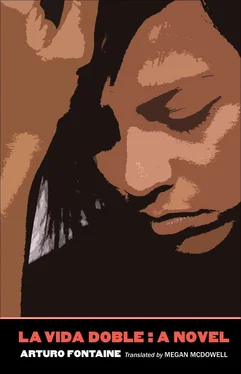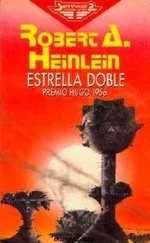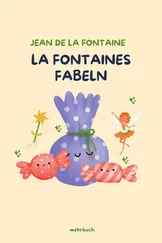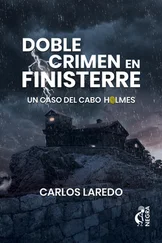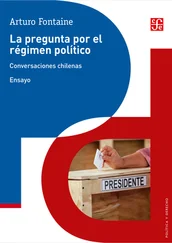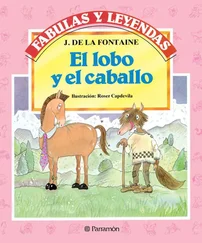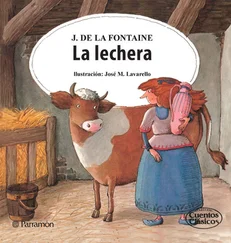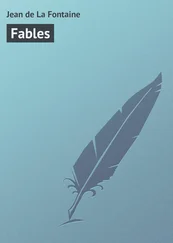Great Dane has them call me in. I’m summoned urgently to his new office, the one that used to be Macha’s. Something smells off to me. I meet Gato in the hallway. He’s just arriving. It’s six in the evening. He doesn’t know anything, he tells me, his head hanging down. The new C3.1 doesn’t like him too much, he tells me. “He’s not like Flaco,” he tells me with a complicit little smile that I can’t stand. “But soon he’ll realize what I’m worth. It’s always the same. . Macha, they’ve got him fucked good,” he tells me. “At night,” he tells me mysteriously, “I hear sounds, like this building is creaking. .” And in a whisper, mischievously, “Careful with Great Dane. That blondie has a really big one. . If you don’t believe me, ask Pancha. She told me herself.” And he bursts out laughing.
I open the office door: it’s not Great Dane, it’s Macha. He’s looking at me with his long-lashed eyes. He has me sit down. His desk is between us.
“ You’re here? But I saw you leave the parking lot with an escort and in cuffs,” I tell him straight off, and I laugh.
He lets out a contemptuous sigh:
“It’s just a disciplinary action. That’s all. Another one. .”
Often, as now, his eyes didn’t shine, they were opaque. I felt it as a challenge, that tragic veil. He turns and opens the safe. Hanging on the corner, his holster and CZ.
“I received this file,” he says in a short, brusque tone. “Classified information about the currency exchange on Monjitas. The owner and manager is named Juan Isidoro Zañartu Cortínez. But Juan Isidoro Zañartu Cortínez died fifty-nine years ago when he was five months old. They used that name to falsify his ID card and get a national tax number. Because the number is valid. Do you know anything about this?”
“No,” I say.
“Nothing?”
“Absolutely nothing.”
“You have to get to him. You have to find him.”
“How?”
“Your problem,” he tells me.
“You photographed everyone who came to work there in the morning, right?”
“Affirmative,” he answers reluctantly.
“And also everyone who leaves at night?”
“What makes you think we’re such stupid motherfuckers?” He laughs.
“It has to be one of them. Find the ID that corresponds with those photos. The one who doesn’t have a registered ID, that’s him.”
“Already done, woman.” And he laughs in short, low bursts. “The Department of Identification informed me that everyone there has a valid ID and none of them is Juan Isidoro Zañartu Cortínez. Look.”
He shows me some pages with photocopied IDs and the photos that were taken of people going in and out of the currency exchange. “One of those women works for us,” he says, bored. “She infiltrated a few days ago. She’s a ‘cleaning lady.’ But she hasn’t gotten anything.” I look at the faces. I recognize the woman with glasses who lent me a black Bic pen to sign the receipt at the currency exchange we held up. She was “fixed,” they told us then.
“What are you thinking about?”
“Do you have the blueprints of the building? There could be a private elevator and an underground parking lot.”
He hits his forehead. In his smile, I see the shine of his white, even teeth.
“I’ll call you.”
The day they showed me the photo, I couldn’t believe it.
“He’s in a wheelchair,” Macha told me. “You can just see the backrest there, see?”
“No, I don’t know. It could be a spot, or a shadow on the wall. .”
“Here, you can see it better in this enlargement.”
And, now yes, I can make out the metal of a wheelchair. As for him, he’s a distinguished gentleman with gray hair receding on the sides, a streamlined nose, fine lips. He must be some sixty years old.
Seeing the photo made a strong impression on me. I held back. Macha must have noticed. He looked at his Rolex.
“Come with me,” he said, putting on his Ray-Bans and sliding the CZ under his belt.
A couple of minutes later we were going around seventy-five miles an hour on his ’76 Harley-Davidson, under the oriental plane trees in Forestal Park. I smelled his scent and the scent of his black leather jacket, and I felt the hard triangle of his back against my breasts. I wasn’t thinking about anything. The afternoon air blowing on my face, his smell and the smell of his jacket in my nostrils, and my breasts against his back. That was being alive, period. How old was I then? Twenty-seven? And him? Thirty-two, thirty-three? Does that explain anything? I see his CZ without its holster, held only by his belt. Vertigo: What if I grabbed it and pointed it at his head? If I made him stop the motorcycle and then I killed him and took off on it?
We stopped on Calle Agustinas. Macha offered me a cigarette. We each smoked two, and then he handed me a Minolta.
“You have a very pretty neck,” he told me suddenly.
I laughed, surprised.
“Long and thin,” he said.
A white Volkswagen van came out of the underground parking lot. I took my first picture. Macha stepped on the kick start lever and we followed it. The van went up one block, turned and went several blocks on Monjitas, and then turned right and we followed it up Compañía. Another two or three photos. The license. Half a block after Plaza Brasil it disappeared behind a metallic door. Compañía, street of old houses with a single continuous facade. We drove past it slowly. Another photo. A big, grayish house from the end of the nineteenth century, balconies, stucco ornamentation, thick bars on the windows, the door to the street in the middle of the house’s front.
“There,” Macha says to me. “Have you ever been there?”
“Never,” I tell him. “Notice it has an alarm.”
We shot away when the light turned green. We went fast. We went down the Costanera highway along the edge of the park, leaving the cars behind. The way the motorcycle leaned into the curves. The violent air in my mouth.
“What are you thinking about?” he says.
He’s sitting on the floor, his back against my black leather sofa.
“Cheers,” he says, raising his glass.
“Cheers,” I say, and I feel his eyes looking for mine and I don’t look at him.
I look at the foam on my beer. He wanders around the room. He looks out the windows. It’s dark and he’s looking out from the twelfth floor. Below, the restless lights of the cars and the immobile street-lights along the Costanera.
“You can see San Cristóbal Hill during the day, right?”
“Yes.”
“Smell the pine trees?”
“Yes.”
“The sun comes up over there, right?”
“Yes.”
He sits down at the dining room table. It’s small, for four people. He gets up and goes on pacing.
“I’d like to take pictures of you,” he tells me.
His straight nose, his prominent eyebrows, bushy and intense. On his forehead, a small scar. Small, but ugly. That shard of glass the night he went into the Spartan’s pension and tried to take him alive.
“It’s not smart,” I tell him. “In the life we lead it’s not a good idea for photos to be floating around out there.”
“Correct. We’ll tear them up.”
“I don’t believe you.”
“You don’t trust me.”
“Of course not.”
He smiles under his moustache.
“You’re used to this,” I say.
“To what?”
“To this life where nothing is what it is.”
“There are some things a person never gets used to.”
“Like what?”
“Like the feeling of coagulated blood under the soles of your shoes when you take a step.” And, as if that were nothing: “Years ago I saw a movie, it had a French agent who was taking pictures of a woman. It was an old movie, black and white. It was a video we found in a raid. It was in French. I didn’t understand much. I don’t remember what it was called. I remembered it when I came into this apartment. The woman was beautiful, beautiful, naturally beautiful.”
Читать дальше
